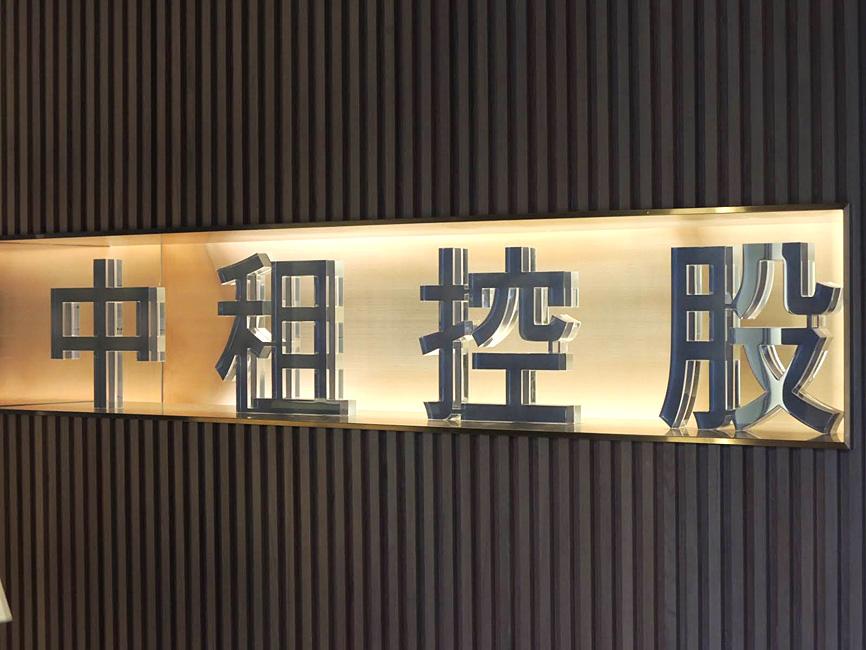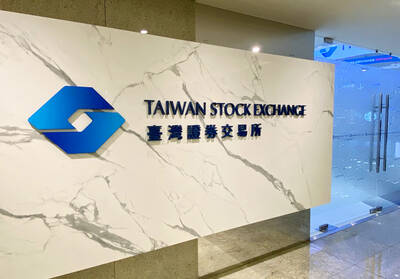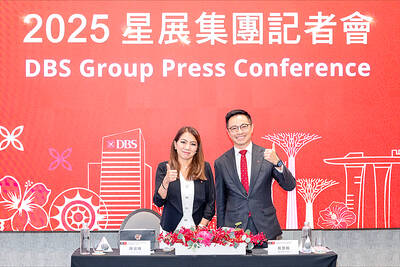Chailease Holding Co (中租控股) has bought COVID-19 insurance for all its 4,000 local employees and Taiwan-based family members of those stationed abroad, the firm said yesterday.
Chailease, the nation’s top capital leasing service provider, said it would also offer paid leave for those receiving COVID-19 vaccines, as well as disburse quarantine hotel expenses.
The program is necessary due to a local outbreak of COVID-19 and continued spread of the virus throughout Asia, the company said in a statement.

Photo: Lee Chin-hui, Taipei Times
As part of its disease prevention efforts, Chailease distributed NT$3,000 (US$107.79) of food supplements, masks and hygiene products to each of its employees prior to the Lunar New Year holiday in February, it said.
The firm, based in Taipei’s Neihu District (內湖), also offers free stays at its Park City Hotel (成旅晶贊) branches in Taipei, New Taipei City, Taichung and Hualien to frontline medical workers, police officers and firefighters, Chailease said, adding that the campaign is running from June trough the end of this month.
It aims to help frontline workers relax during a free summer vacation, the firm said.
Chailease has also collaborated with its affiliated biotechnology company Protect Life (保生生醫) in donating COVID-19-related medical supplies to local communities, it said.
Healthy earnings lent support to its charity programs, the company said.
Chailease posted NT$10.5 billion in net income for the first six months of this year, 30 percent up year-on-year, or earnings per share of NT$7.11, company data showed.
Chailease attributed the trend to capital leasing demand on local and overseas markets.
Penetration rates for capital leasing remain low in Taiwan and China compared with advanced markets in the US and Europe, suggesting ample room for improvement in Asian markets, the company said.

Taiwan Semiconductor Manufacturing Co (TSMC, 台積電) secured a record 70.2 percent share of the global foundry business in the second quarter, up from 67.6 percent the previous quarter, and continued widening its lead over second-placed Samsung Electronics Co, TrendForce Corp (集邦科技) said on Monday. TSMC posted US$30.24 billion in sales in the April-to-June period, up 18.5 percent from the previous quarter, driven by major smartphone customers entering their ramp-up cycle and robust demand for artificial intelligence chips, laptops and PCs, which boosted wafer shipments and average selling prices, TrendForce said in a report. Samsung’s sales also grew in the second quarter, up

LIMITED IMPACT: Investor confidence was likely sustained by its relatively small exposure to the Chinese market, as only less advanced chips are made in Nanjing Taiwan Semiconductor Manufacturing Co (TSMC, 台積電) saw its stock price close steady yesterday in a sign that the loss of the validated end user (VEU) status for its Nanjing, China, fab should have a mild impact on the world’s biggest contract chipmaker financially and technologically. Media reports about the waiver loss sent TSMC down 1.29 percent during the early trading session yesterday, but the stock soon regained strength and ended at NT$1,160, unchanged from Tuesday. Investors’ confidence in TSMC was likely built on its relatively small exposure to the Chinese market, as Chinese customers contributed about 9 percent to TSMC’s revenue last

Taiwan and Japan will kick off a series of cross border listings of exchange-traded funds (ETFs) this month, a milestone for the internationalization of the local ETF market, the Taiwan Stock Exchange (TWSE) said Wednesday. In a statement, the TWSE said the cross border ETF listings between Taiwan and Japan are expected to boost the local capital market’s visibility internationally and serve as a key for Taiwan becoming an asset management hub in the region. An ETF, a pooled investment security that is traded like an individual stock, can be tracked from the price of a single stock to a large and

Despite global geopolitical uncertainties and macroeconomic volatility, DBS Bank Taiwan (星展台灣) yesterday reported that its first-half revenue rose 10 percent year-on-year to a record NT$16.5 billion (US$537.8 million), while net profit surged 65 percent to an unprecedented NT$4.4 billion. The nation’s largest foreign bank made the announcement on the second anniversary of its integration with Citibank Taiwan Ltd’s (花旗台灣) consumer banking business. “Taiwan is a key market for DBS. Over the years, we have consistently demonstrated our commitment to deepening our presence in Taiwan, not only via continued investment to support franchise growth, but also through a series of bolt-on acquisitions,” DBS